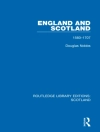Gas molecules such as O
2, NO, CO and ethylene are present in the environment and are endogenously (enzymatically) produced to act as signalling molecules in biological systems, including the regulation of metabolic networks, chemotaxis, circadian rhythms, mammalian hypoxia responses, and plant ethylene responses by transcriptional, translational, or post translational control. Sensing these gas molecules is the first step in their acting as signalling molecules. When a sensor domain/protein senses an external signal, intra- and inter-molecular signal transductions take place to regulate the biological function of a regulatory domain/protein such as DNA-binding, enzymatic activity, or protein–protein interaction. Interaction between gas molecules and sensor proteins is essential for recognition of gas molecules. Metal-containing prosthetic groups such as haem, iron–sulfur clusters, and non-haem iron centres are widely used. As these metal-containing centres are good spectroscopic probes, detail characterizations have utilized spectroscopic techniques along with X-ray crystallography.
Covering both the signalling and sensing of gaseous molecules, this book provides the first comprehensive overview of gas sensor proteins in both prokaryotic and eukaryotic cells. This book will be particularly interesting to postgraduates and researchers in biochemistry, molecular biology and metallobiology.
قائمة المحتويات
Overview of Gas Sensing Systems; Haem-Based Sensors of Nitric Oxide; Haem-Based Sensors of Dioxygen; Haem-Based Sensors of Carbon Monoxide; Iron-Sulfur Cluster-Based Sensors; Non-Haem Iron-Based Sensors of Reactive Oxygen and Nitrogen Species; Mammalian O2 Sensing and Signalling; Plant Ethylene Sensing and Signalling; Subject Index
عن المؤلف
Professor Shigetoshi Aono received a Ph.D. from Tokyo Institute of Technology at 1987. After working as a postdoctoral fellow in the University of Georgia, he was an Assistant Professor in Tokyo Institute of Technology and then an Associate Professor in the Japan Advanced Institute of Science and Technology from 1994. He is now a Professor in the Okazaki Institute for Integrative Bioscience & Institute for Molecular Science since 2002. His research focuses on the heme-based gas sensor proteins such as CO sensor (Coo A) and O2 sensors (Hem AT, Aer2, and Hem DGC). He has pioneered the establishment of CO as a signaling molecule for bacterial transcriptional regulation.












